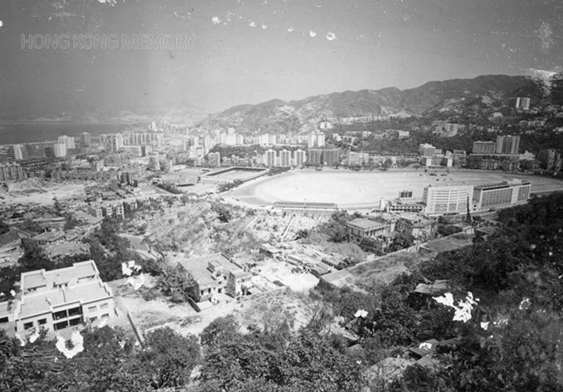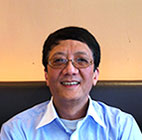
Happy Valley in the 1950s
As Ng Chiu Pang’s father was a senior civil servant, the family moved into a civil service quarters in Happy Valley during the mid-1950s. Ng Chiu Pang and his siblings subsequently all spent the rest of their childhoods there-Hong Kong Memory Website
Happy Valley in the 1950s
As Ng Chiu Pang’s father was a senior civil servant, the family moved into a civil service quarters in Happy Valley during the mid-1950s. Ng Chiu Pang and his siblings subsequently all spent the rest of their childhoods there-Hong Kong Memory Website
His father moved away from the ancestral home in the village to improve his family’s quality of life
Ng Chiu Pang's grandmother used the US dollars her seafarer husband remitted home to buy up village houses in Nga Tsin Wai and farmland outside the village. In 1954, the Government resumed these farm lands in order to expand Kai Tak Airport. After getting the family’s compensation from the Government, Ng Chiu Pang’s father teamed up with Lee Jok Foo, a good friend in Nga Tsin Wai, to build a house at No. 88 Fuk Lo Tsun Road where their two families could share. Fuk Lo Tsun Road was close to Ng Tsin Wai and it is only around a 5-minute walk. Ng Chiu Pang’s family’s life improved a lot after they moved into their new home as they not only had sitting, dining and bed rooms but also a toilet. After Ng Chiu Pang’s father was appointed a Government school principal he enjoyed the status of a senior civil servant and was eligible to purchase a residence via the Civil Servants’ Co-operative Society. The whole family then moved to live in Briar Avenue, Happy Valley where Ng Chiu Pang’s father lived until he passed away.


 BACK
BACK  CLOSE
CLOSE 